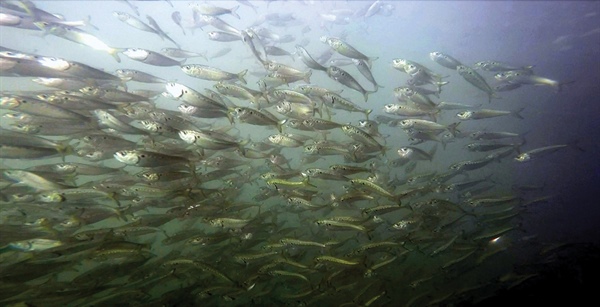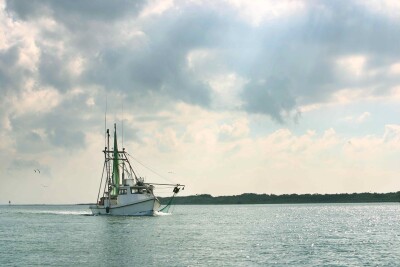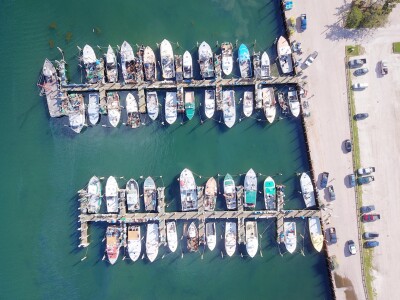Omega Protein said it will cooperate with interstate menhaden managers, after the Department of Commerce set a June 17, 2020 deadline for Virginia to come into compliance with the Chesapeake Bay cap on its reduction fishery or face a moratorium.
Commerce Secretary Wilbur Ross formally concurred with the Atlantic States Marine Fisheries Commission finding of non-compliance, after the commission in October voted to insist the Reedville, Va.-based Omega Protein must adhere to the commission’s 51,000 metric tons bay cap.
Chris Oliver, the NOAA assistant administrator for fisheries, notified the commission Thursday of Ross’ decision.
“NOAA Fisheries also finds that this management measure is necessary for the conservation of the menhaden resource,” Oliver wrote in a letter to the commission. “The best available information shows that menhaden in the Chesapeake Bay are an important component of the overall health of the stock, and further that their role as forage for predator species in the Chesapeake Bay is critical to the marine environment.”
Omega officials, who faced off with critics for months before the commission vote, pledged Thursday to work toward solutions.
“Omega Protein will work with both the ASMFC and the Commonwealth of Virginia to lift the moratorium and bring the fishery back into compliance,” the company said in a prepared statement. “The company looks forward to working with the commission in the coming months as we move toward ecosystem-based measures, and will continue to support science-based fishery management and a healthy menhaden fishery.”
Still, the company reiterated its position that the commission’s hard line is unjustified.
“This is the first time that a moratorium has been placed on a fishery that is not overfished and is healthy by every measure,” according to the Omega statement.. “Omega Protein has historically supported the Commission process and respected the decisions of the ASMFC. However, the company remains firm in its belief that fishery management should be based on science, not on politics.”
Oliver NOAA wrote that the June 17 deadline was selected “to give Virginia the time necessary for its legislature to bring these regulations back into compliance.” Under Virginia law the state General Assembly has authority over the menhaden industry and had set its own fishing cap at 87,216 metric tons.
The Atlantic states commission is subject to pressure from environmental and recreational fishing groups who say Chesapeake menhaden harvests take too much forage fish out of the ecosystem.
Overall the Atlantic menhaden has not been subjected to overfishing since the 1960s, and the coastwide quota has been raised three times since 2015 even as the commission cut its bay cap 41 percent in 2017.
Omega argues federal moratoriums can only be imposed if they are necessary for conservation of the fishery. That process for enforcing commission findings is governed by the Atlantic Coastal Fisheries Cooperative Management Act of 1993, colloquially called the Atlantic Coastal Act, which makes the Department of Commerce and NOAA the final enforcers of ASMFC decisions.
Over the years the implied threat of moratoriums has brought recalcitrant states into line when they balked at commission decisions on striped bass, for example.
“I am grateful for the Secretary’s support of the Commission’s fisheries management process and, in particular, our efforts to manage Atlantic menhaden, an important forage species, in a precautionary manner,” ASMFC chairman Patrick C. Keliher said in announcing the Commerce decision. “The Secretarial backstop is a key provision of the Atlantic Coastal Act.”
The commission’s Menhaden Management Board last summer recommended the finding that Omega was overran the cap. That capped months of dispute between the commission, Omega and Virginia officials.
Omega said adverse 2019 conditions in ocean waters off the Virginia capes led its crews to work more in safer bay conditions. The company further contended that the commission’s earlier decision to cut the bay fishing cap 41 percent in 2017 was “an arbitrary figure that was not scientifically derived.”







